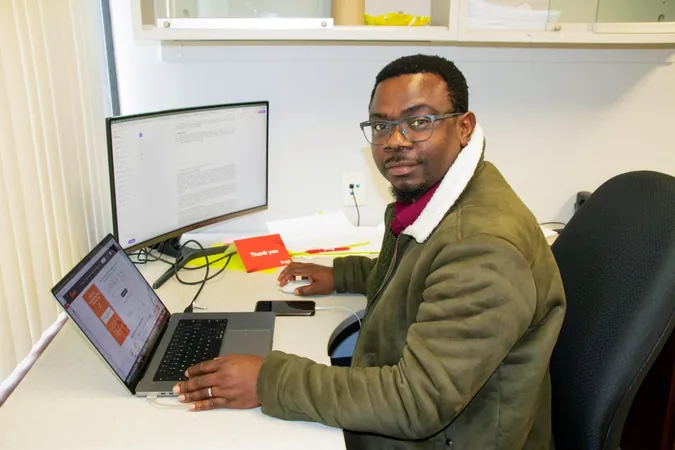
Revolutionizing Heart Health: Brock University's AI Tool Takes on Heart Failure Risk
2025-05-19
Author: Sophie
In a groundbreaking development that could transform the future of heart health, Blessing Ogbuokiri, an Assistant Professor at Brock University, is harnessing the power of artificial intelligence to tackle heart failure—a cause that personally resonates with him after the loss of his mother to a heart condition.
Driven by his passion to support others grappling with similar health issues, Ogbuokiri is spearheading the creation of a machine learning model aimed at predicting the risk of hospital admission or death due to heart failure in older patients.
"Although I’m not a medical professional, I believe I can contribute to addressing heart failure through my expertise in AI," states Ogbuokiri, who leads the Responsible and Applied Machine Learning Laboratory at Brock.
With funding from Brock University's Black Scholar Research Grant, Ogbuokiri and his dedicated student team are analyzing health data from the Canadian Longitudinal Study on Aging. By exploring various factors such as medical history, smoking habits, physical activity, socioeconomic factors, and chronic conditions like diabetes, they aim to train their model to recognize patterns associated with heart failure risk.
"Once our model is fully trained, it will be capable of delivering predictions about a patient's heart failure risk—like determining if someone has a 50% chance of requiring hospitalization," Ogbuokiri explains.
This innovative tool promises to empower both patients and healthcare professionals, enabling quick assessments of heart failure risk at the touch of a button. It has the potential to inspire patients to adopt healthier lifestyles or assist healthcare providers in taking proactive measures to prevent overcrowding in hospitals.
Crucially, Ogbuokiri emphasizes the importance of equitable access to this technology, as it could particularly benefit Black and underserved communities disproportionately affected by heart failure. These populations often encounter systemic biases that hinder their access to timely interventions.
To combat these biases, Ogbuokiri and his team are implementing rigorous bias mitigation strategies during the data preprocessing phase and assessing the fairness of their model using various metrics, ensuring it performs equitably across different demographic groups.
Ogbuokiri’s heartfelt motivation and technical adeptness embody the spirit of the Black Scholar Research Grant, demonstrating how personal experiences can lead to impactful solutions in healthcare.









 Brasil (PT)
Brasil (PT)
 Canada (EN)
Canada (EN)
 Chile (ES)
Chile (ES)
 Česko (CS)
Česko (CS)
 대한민국 (KO)
대한민국 (KO)
 España (ES)
España (ES)
 France (FR)
France (FR)
 Hong Kong (EN)
Hong Kong (EN)
 Italia (IT)
Italia (IT)
 日本 (JA)
日本 (JA)
 Magyarország (HU)
Magyarország (HU)
 Norge (NO)
Norge (NO)
 Polska (PL)
Polska (PL)
 Schweiz (DE)
Schweiz (DE)
 Singapore (EN)
Singapore (EN)
 Sverige (SV)
Sverige (SV)
 Suomi (FI)
Suomi (FI)
 Türkiye (TR)
Türkiye (TR)
 الإمارات العربية المتحدة (AR)
الإمارات العربية المتحدة (AR)